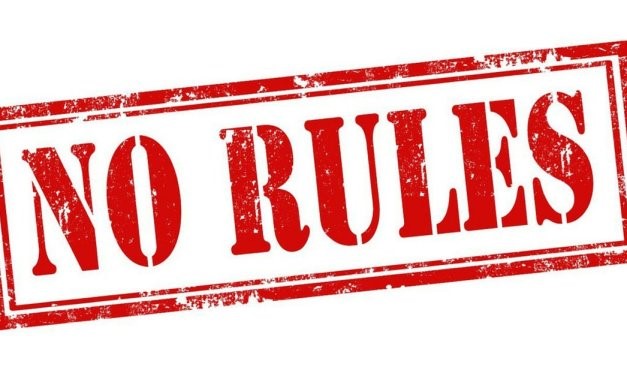
traditional
Selling shovels
You will notice I haven’t been posting much at all, much less my thoughts on ebooks and publishing. Wanna know why? I’m too busy with my burgeoning business to put any thought into a) what’s wrong with publishing (because why do I care?); b) how to go about formatting ebooks (because that changes week to week); and c) wondering if I’m ever going to get my historical swashbuckler researched and written (because I’m a writer, dammit!).
In case anybody cares, these are my current random thoughts, none of which rate the time to explore in a full-on blog post (plus, I’ve said it all before):
1) Writers: You’re screwed unless you put out your own stuff and you can market it. The old days are gone. “Getting” published is fine if that’s what you need to validate your soul. If you want better odds on getting to readers and making a little money, do it yourself. But dammit, do it right!
2) Writers: Remember that the people who made money in the gold rush didn’t make it panning for gold, chasing a vein that didn’t exist. The people selling the shovels made all the money. Learn a new skill and sell some shovels. You aren’t going to make a livable income writing for da man. Just don’t make any plans to leave your day job.
3) Book designers: Stop trying to format ebooks on a print paradigm. Ebooks are not print books. They don’t serve the same function. It’s like trying to apply a print paradigm to audiobooks. Stop it. Learn how to format serviceable, good-looking ebooks and forget about Teh Fancy.
4) Editors: Go freelance. Market your name. Make the authors who hire you put your name in the book so you can establish your brand. The curation of books in the future will depend on the editor, not the author, not the publishing house.
5) Indexers: You have a bright and shiny new field to explore. Learn how to index digitally. It’s called anchor tags.
6) Publishers: Get your metadata in gear. Seriously.
7) Publishers: The first publisher to chapter-and-verse its digital textbooks/reference/nonfiction will win the prize. What do I mean? I’ll tell you. Pick up a Bible. Any Bible, any translation, any size, any publisher. Go to John 3:16. That’s what I mean. Develop a system. Patent/trademark it then license it. Make it the standard of any good digital nonfiction book, the way good indexing is. Indexers, see #5.
That is all. I have a mountain of work to get done before I leave for NY next week.
I got your suggestions right here.
The Pareto Principle.
Also known as the 80/20 rule, wherein 80% of sales are generated by 20% of the customers. When applied to the way publishing gambles on blockbusters to subsidize its titles that lose money, it might be more or less 20% of the authors make 80% of the sales.
Publishers look for and sign new authors in a neverending search for the next blockbuster book that will sustain the 20%. Very often a new author will be taken on in favor of renewing a current author’s second or third book if the sales don’t meet expectations (which could mean that it did, in fact, make money, but not enough to satisfy the bean counters).
Last month, I was involved in a rigorous discussion on Dear Author, wherein author Courtney Milan likened publishing’s ability to support this model to pooling risk or, more precisely, flood insurance. I found the flood insurance specificity to be flawed and said why, but really I found the whole “risk pooling” argument flawed, but couldn’t articulate it, so I remained agnostic on the subject for the moment.
Now, after having stewed on it for a while, the better (read: more polite) analogy would be research and development—except without so much the development part.
Recently, president of Farrar, Straus & Giroux, Jonathan Galassi, wrote an extraordinarily unorganized, incohesive rant op ed piece in the New York Times concerning whose rights are whose once the publishing house has put its resources into a manuscript to make it a salable product. Quite frankly, other than the amusing fact that he (an editor) wrote an essay not worthy of a high school freshman learning the basics of English composition, I don’t give a shit about what he thinks the publishers’ value-added rights are.
It was his exemplar of an author long dead, into whom marketing resources were invested to make him that success, that struck me as disingenuous. And a non sequitur. Or ignernt. Dude. You do realize that very few new authors are given these kinds of resources, right? Publishers throw new authors at the wall to see who sticks. There is no “development” counterpart to “research.”
Given that, I’ve moved on from a publisher’s resource allocation to be “risk pooling,” to “research and development,” to “shotgun approach.”
Hang with me—I know I’m only about the 1,537th person to say this, but I do have a point.
So yesterday on Teleread, Rich Adin from An American Editor opined that the way to save publishing is to kill the paperback. When the usual suspects (me) broke out with the usual reaction (Are you out of your fucking mind?), he shot back with, “Well, do you have any better ideas?”
Never mind I have no interest one way or another whether publishing remains profitable, and it’s not my job to put little slips in the suggestion box that will be ignored, and people (readers) have been screaming their fool heads off about what they want which would keep publishing profitable and publishing’s just not paying attention, I will tell you how to keep publishing profitable:
Do less research.
Put a little more development into your research.
Quit getting caught up in auction fever.
Embrace the e-book and treat it as deferentially as you do your other formats and respect those people willing to pay for it. Court them. Cultivate them. They have money to spend on books. Really.
The point is to make every title profitable, or as close to it as you can get.
But I don’t really think you care.
Doc McGhee, literary agent
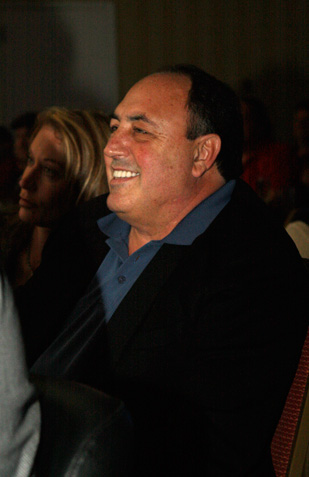 Hang with me for a series of seemingly unrelated factoids.
Hang with me for a series of seemingly unrelated factoids.
- Y’all know who Doc McGhee is, right? He was Mötley Crüe’s manager way back in the day and pretty much made them rich and famous.
- In early November, Amazon “suck[ed] up to literary agents” in a bid to kill its monsterly image. Really? They need literary agents to kill its monsterly image? Who’d’a thunk it?
- Random House, Simon & Schuster, and Hachette all announced they would be holding off releasing ebooks of new (hardcover) titles by six months. The brilliance never ends.
- Stephen Covey just told Simon & Schuster to fuck off. Well. I’m pretty sure that’s not exactly what he said.
- There is one thing an unknown or midlist self-published author can’t get that s/he needs most.
- There is only one thing a bestselling name-brand author has but doesn’t need at all.
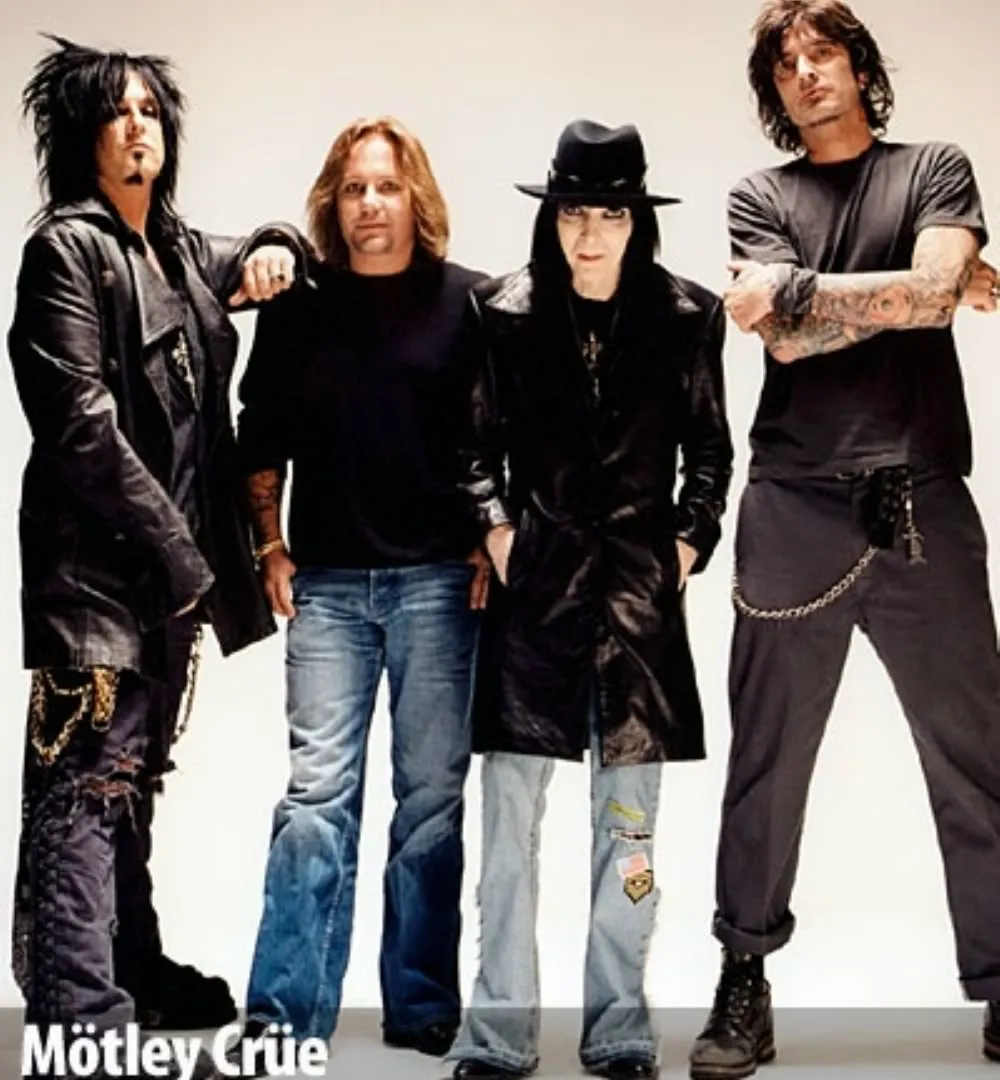
I’m not going to explain any of this stuff. The graphic should make it, well, graphically obvious. Take the above seemingly unrelated items, throw it in with this, and see what you come up with. Assume the writer has not himself arranged for the actual production of his manuscript into print and electronic:
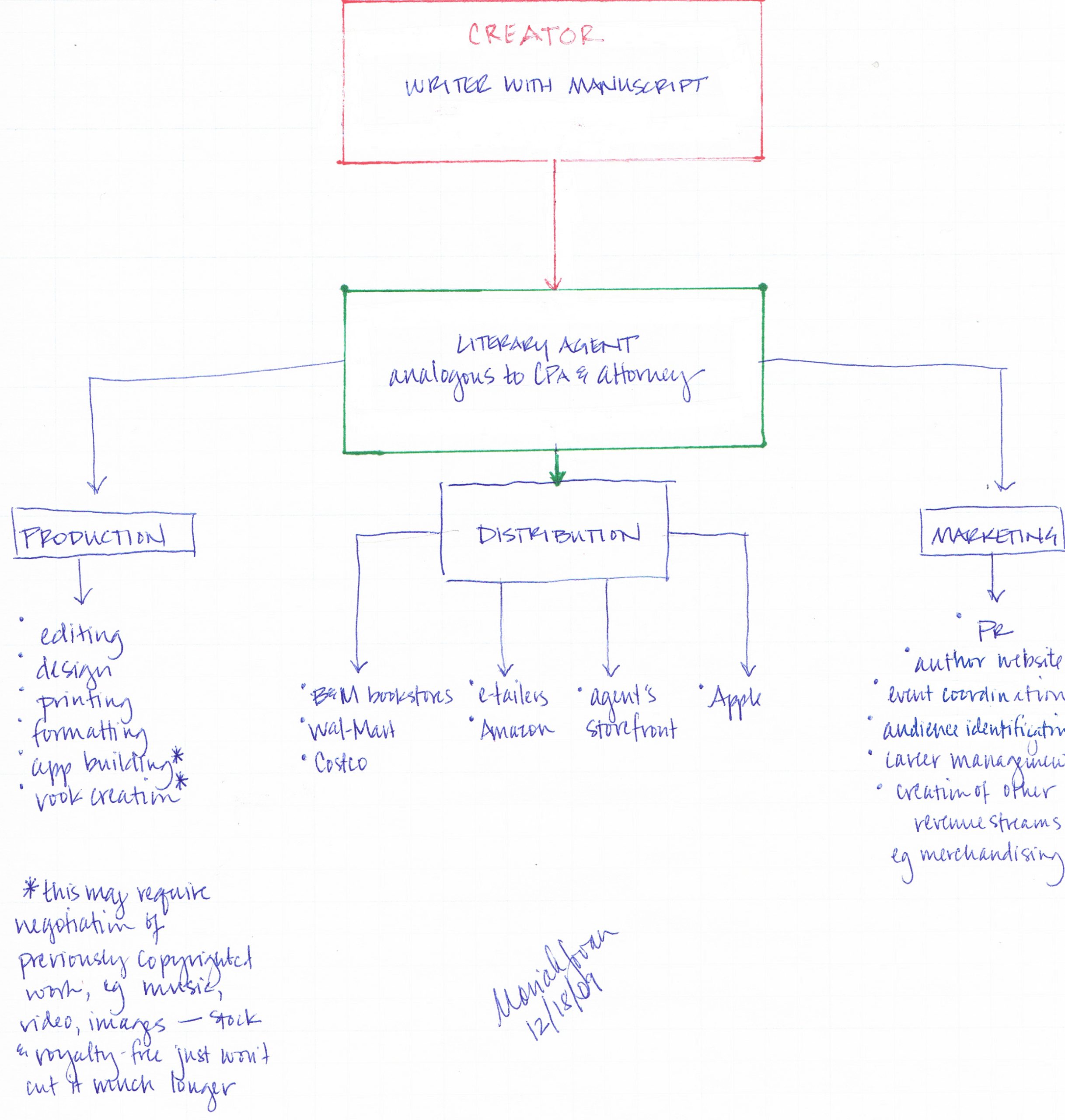
Pop quiz: What word is nowhere to be found in the above flowchart?
I think there’s one agent out there who already knows all this and is slowly, steadily—over weeks, months, years—training his blog readers to start thinking this way.
The difference between how agents work now and how this could work is that a writer would interview agents and hire one (as s/he would an attorney or CPA), as opposed to becoming a supplicant for the agent’s approbation/validation. Agents who now work as if they’re doing writers a favor may not deal with this system well.
On the other hand, even though this is my own plan, I can see that it could land us right back where we are now if writers won’t let go of the thought that they’re powerless and/or only incidental to the book creation process.
Writers, listen up: You’re the creator. There’s power in being the originator of content. Use that power and take control of your own destiny. It’s your work. Take responsibility for its dissemination.
Writers: Accept it and keep going. Or not.
Keep your day job.
Accept that you will not be able to quit your day job.
Regardless how much weeping and wailing and gnashing of the teeth goes on around the web about monetizing art, if you’re a writer not already pulling income that allows writing to be your day job, just deal with the fact that you probably aren’t going to.
In my mind, making peace with the fact that you have to keep your day job is a lot easier than spending all your creative energy to resent it. Ask me how I know.
Today, right now, as I look over the fiction writer landscape on the web, I see lots of writers I can slot into roughly five categories:
- The unpublished authors seeking publication via the normal route (query/reject/revise/repeat). They’re hustling to get an agent’s attention, and possibly spending money on ink/toner, paper, envelopes, and postage to do so. They aren’t earning any money.
- The midlist authors having to prove their numbers in order to get their next book contract, which means they have to hustle and market and fight to make sure people know their books exist (especially if they aren’t in Wal-Mart or Target). They probably aren’t earning enough to write full time.
- The self-published authors having to fight just to let people know they and their work exists. They probably aren’t earning enough to pay the cost of producing their book(s), much less earn a living.
- The career category authors (Harlequin/Silhouette) and e-published romance authors (Samhain, LooseId, Ellora’s Cave), a good portion of whom can earn a fairly decent living cranking out the books, but there’s a catch: Putting out enough books to make that kind of living has to be grueling. At least, it would be for me. YMMV. The advantage to e-publishing over career category publishing, though, is that your titles never go out of print and you have A) time to build a backlist and B) your backlist is forever available to any late-night shoppers with a credit card.
- The A- and B-list authors who have pressures of their own, I’m sure, to which I am not privy. This includes anyone who may (if they choose to) write only one book per year or fewer and earn a comfortable living doing so.
Now, I’m obviously #3, except that I’m doing okay: Not enough to quit doing my day job, but enough to bear out the investment of time and money. (See my Six-Year Plan.) However, my goal is the same as the e-published authors: Build the backlist and invest in the future.
I hate my day job. I really do. Yeah, it’s my own business but I hate the work, mostly because I’ve been doing it or something similar for years. It’s easier now that I have a couple of decent clients, but the work remains. I fight an uphill battle every day to Just Do It, but do it I must. Some days I’m more successful than others.
But the explosion of free versus paid writing that has kind of ballooned lately with Chris Anderson’s book Free, and Malcolm Gladwell’s review of that book in the New Yorker only reinforces the necessity of resigning myself to the fact that I must have a day job.
For now.
The fact of the matter is that I have better odds of doing so than unpublished authors who hold out hope that they’ll hit the lottery.
I also believe that I have better odds than those authors who have to prove every book via sales, even if all the stars are aligned against them (bad cover art, little marketing support, not being in Wal-Mart or Target); perhaps that myopic of me, but I’m hustling for 100% profit, while they’re hustling for 10% royalties and they’re locked into questionable digital contracts (amongst other things).
As for career category writing, I couldn’t do it (as stated above), especially within the restrictions of category. I know, because I tried, and missed the bullseye by half a hair every single time.
I also couldn’t do e-publishing because there isn’t one that would contract what I write, and I know that; I’d rather not waste their time or mine. Also, see above for the grind in order to make money.
Basically, what I have on my side is control and time. I’m going to write no matter what, and I’m going to write what the stories I have to tell. I’d rather put it out there for the opportunity to earn a little money than let it languish in the inboxes of agents who are also feeling the pinch.
Yeah, I think I’m in a really good position. I just can’t quit my day job.
Yet.
I’m slowly coming to terms with that.
The Urban Elitist interviews Tao Lin…
NOTE: This is the fifth in a series of several posts David Nygren of The Urban Elitist and I will be cross-blogging concerning the issue of authors (whether traditionally published, e-published, or self-published) actually getting paid for their work.
… a rather benignly frenetic author whose ability to think out of the box in terms of monetizing his art is, well, astounding. David had to promise Sontag in return for an interview; the barter system at work and tax-free, to boot!
I’ve had time to stew on this a bit and I have some closing thoughts (at least, for me), which I’ll blog in the coming days.
I chuckle
Gawker Unsolicited: Spell my Damn Name Right, and Other Hot Tips for Agents.
Somebody give me a machete. I can’t get through all the layers of irony here.
Moratorium on manuscript buying
It’s been clear for months that it will be a not-so-merry holiday season for publishers, but at least one house has gone so far as to halt acquisitions. PW has learned that Houghton Mifflin Harcourt has asked its editors to stop buying books. […] Another agent who had also heard about the no-acquisitions policy at HMH called the move “very scary” and said it’s indicative of an industry climate worse than any he’s ever seen.
Predictions:
- Expect this to keep happening for a while at other major publishers.
- More independent publishers will spring up, particularly in the ebook arena.
- Major publishers will start mining their backlists for ebooks. Oh, wait, they already have. Credit for innovation coming right up!
- Revisions in the advance/royalty system. E-presses blazed this trail, but Harper Studios has taken up the cause (and may end up reaping the credit for that, too).
- This may be the death knell for the consignment system of selling books. One can hope, anyway.
Yeah, it’s depressing, but A) everybody’s having a hard time, so boo hoo at you too, publishing and B) everything is cyclical.
Quite frankly, the economic downturn and the rise of the ebook couldn’t be timed better. You build up the low-cost or free alternative in the downswing (coupled with instant gratification), something people can afford and are open to, then you see it explode once the upswing begins.
 Dead tree books will NOT be a thing of the past (knock on wood), but the smart publishers and booksellers will find cheaper alternatives to bring those to market too. If you want to survive after an economic downturn, you must start thinking in the long-term instead of the short-term; you sure as heck aren’t making any money now, so figure out how to make money when everybody has some again.
Dead tree books will NOT be a thing of the past (knock on wood), but the smart publishers and booksellers will find cheaper alternatives to bring those to market too. If you want to survive after an economic downturn, you must start thinking in the long-term instead of the short-term; you sure as heck aren’t making any money now, so figure out how to make money when everybody has some again.
Pssst, publishers and booksellers:
It’s called the Espresso.
In kiosks.
At Wal-Mart, Target, and smack DAB in the middle of your chain or independent bookstore.
Ah, homogeneity!
So I saw this in Publisher’s Weekly online yesterday and bookmarked it to blog about, but then Janet Reid beat me to the punch.
Recently, funny things have been happening in my slush pile. I find myself receiving well-written, correctly formatted, professional-looking query letters from bad writers. Imagine my chagrin: one minute I’m intrigued by a smoothly crafted query letter, the next I’m staring down at a crackpot writing sample.
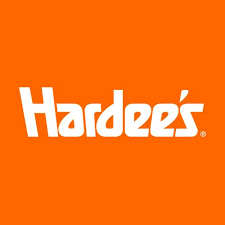 I wondered how long this would take.
I wondered how long this would take.
I will always and forever remember a story my dad told about Hardee’s barbecue sauce and a taste-tester he met. The point wasn’t to make a standout barbecue sauce. The point was to make the barbecue sauce as inoffensive as possible to the largest number of people.
So I’ll call it the Hardee’s BBQ Sauce Query.
One comment on Janet Reid’s blog summed up my thoughts quite nicely:
Post Summary: In the 21st Century, people can Google query on how to do something and find carefully composed instructions. Thus, the prior vetting process is no long efficient for the Literary Agent.
My 2 Cents: Awesome. Adjust or die.
Misckellaneous
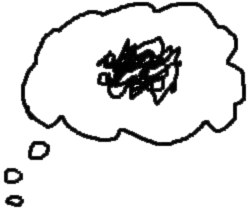 I’ve had a lot on my mind lately that I haven’t been able to untangle, much less unpack on an issue-by-issue basis. What are they?
I’ve had a lot on my mind lately that I haven’t been able to untangle, much less unpack on an issue-by-issue basis. What are they?
- The election
- Prop 8 in California
- “Black October” in publishing
- Independent publishing
- Agents and editors (the “Gatekeepers”)
- Mormon writers/Mormon literature
But a couple of posts on Nathan Bransford’s blog yesterday sorted at least one issue out for me, which is my firm belief that whether or not independent publishing becomes as accepted independent filmmaking and independent music making, it was the right choice for me. And I’m going to come back to that Espresso Book Machine thing because it’s tres important.
Which leads me to a post Mike Cane made recently about self-pubbing and an author’s inability to do it all, yet tries because he wants to save money. He’s right overall, but I learned long ago that creative types in one discipline are drawn to other disciplines and have the ability to do those well, too. What they are, though … that I can’t say. So that’s going to be my jumping off point for today’s Jack Handey.
Doing my part to save a species
DISCLAIMER TO CLEAR UP SOME CONFUSION:
This is NOT about my book.
This is about SOMEONE ELSE’S book.
The Mysterious They say that contemporary romance (you know, without vampires, shapeshifters, werebeasts, ghosts, phantoms, and mimes) is dead. Yeah, I know. ’Swhy I wrote one. Sorta.
I have a very low tolerance for romantic suspense, paranormal romance makes me roll my eyes, and m/m doesn’t float my boat (although I can tolerate it in menage). Give me alternate reality or steampunk or post-apocalyptic or anything that could happen, and I’m good to go. Better yet, give me contemporary.
Okay, so in doing my part to save the whales–uh, er, straight heterosexual contemporary romance (because “straight contemporary” is taking on a whole new connotation these days), I’m going to plug the competition: Flat Out Sexy by Erin McCarthy, as reviewed on Dear Author.
Obviously, I haven’t read this puppy, but I plan to when it comes out and so I’m going to plug it in advance. Why?
I’m dying for a straight contemporary that’s more than 150 pages long (i.e., category length). That’s a snack (and besides, I stocked up on early ’80s Carole Mortimer Harlequin Presents at the thrift store Saturday). Okay, it’s 304 pages, not exactly a feast, but it’ll do in a pinch. I want to support straight heterosexual contemporary the way I want to support independent publishing.
Plus, the heroine is a cougar (not the werecat kind) and we could all use a few more cougars in romance.
So what’s stopping you?
I’ve referenced agent Lori Perkins before because she’s not constantly talking about how to write a better query or cheerleading constantly. YOU!CAN!DO!IT! YES!YOU!CAN! as if the odds of being picked up by an agent and, in turn, a publishing house aren’t astronomical. (And for a pittance, even.)
Anyhoo, today’s LoriPost What Does This Economic Downturn Mean For Writers? is even more sobering for those of you still laboring in the shadow of the faint hope of The Call:
These publishing companies work so far in advance, that when they decide to slow down acquisitions, they can literally just stop buying for 6 or 9 months. And that’s what I predict will happen here.
And yet the news with epublishing is exciting, the industry vibrant and growing, niche markets blossoming as readers find what they want to read that isn’t the SSDD the gatekeepers must buy to maintain their bottom line.
Perhaps it’s time for more writers to shake the dust of [sneer] self-publishing (otherwise more properly known as independent publishing) off their feet and make like the shoppers at Home Depot: Do it yourself. Yeah, it’ll take some time, quite a bit of money if you do it right (e.g. and *ahem* avoid the more egregious vanity/subsidy presses, pay an editor, hire a graphic designer), a complete 180-degree shift in your thinking and attitude, and a helluva lot of hard work (details! O, the details!) but you’re in control.
Freedom, man.
My mother once asked me, “Why are you basing your goals on decisions someone else has to make?”
I rode this train for so long … why?
I have a buncha novels on my hard drive that have been sitting around collecting dust since, oh, 1990 some time, I guess. In ’93 I wrote one that got me an agent another that year that got me a contract—before they were shut down (because, according to the rumor at the time [get this] it was making too much money and it had been created to take a loss for tax purposes) (remember Kismet? Anyone? Anyone? Bueller? Bueller?) [dead link]; one in ’95 that got me an early-Saturday-morning phone call from Harlequin to pleasepleaseplease overnight the manuscript; and a fourth novel in ’98 that got me a different agent.
Go West!
Self-publishing isn’t a new thing. Some of the world’s classics were self-published, although I’m not so arrogant as to think I rank up there with the likes of Mark Twain, Elizabeth Barrett Browning, Willa Cather, e.e. cummings, and Alexander Dumas.
However, it’s new to me. When I was trying to get published back in the ’90s, self-publishing (then only vanity publishing, really) was not only expensive, but the kiss of death. Now … not so much. With concepts such as ebooks, print-on-demand, and the internet itself, the technology is there to do it quickly, relatively cheaply, and to one’s satisfaction (i.e., artistic control). Filmmakers have been doing this for years as have musicians.
I’ll not go into all the reasons I decided to do this myself, but this post by agent Lori Perkins validated my decision to do so.
I’m all about DIY, free markets, and workaround solutions. No, I won’t have a print run of 175,000. Hell, I won’t even have a print run, period. But I think I have a good product that will never see the light of day unless I take the initiative. My hat’s off to those who’ve gone the traditional route. Either I suck as a writer or I’m too far out in the stratosphere.
And I don’t suck as a writer.
